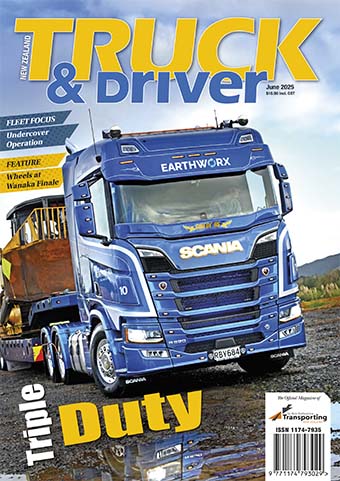
Addressing New Zealand’s Traffic Congestion Through Time of Use Charging
Posted: 06-Mar-2025 |
Auckland’s road congestion is a growing crisis, with a 2021 report estimating that congestion costs the city $2.6 billion per year by 2026. As it stands, Aucklanders collectively lose 29 million hours annually in traffic, amounting to an average of 17 lost hours per person. For the freight industry, the impact is even more devastating: truck drivers face mounting inefficiencies, with companies spending $130 million annually to mitigate delays caused by congestion. This inefficiency restricts the number of trips freight operators can complete, complicates legal time limits for truck drivers, and increases costs for businesses and consumers alike.
The government’s Time of Use Charging Bill proposes charging road users to drive on congested roads during peak times, aiming to incentivise changes in travel behavior. Modeling suggests such schemes could reduce peak traffic congestion by 8-12% .
The bill empowers the NZ Transport Agency (NZTA) and local authorities to design and implement congestion charging schemes on the busiest roads, ensuring alignment with local needs and national standards.
Collected funds will be reinvested into regional transportation improvements, after covering the costs of implementing and operating the schemes. The bill explicitly states that its purpose is not revenue generation but optimization of the road network’s efficiency .
The legislation will pass through Parliament, with public submissions being considered during the Transport and Infrastructure Committee review process. The government aims to pass the law by the end of 2025.
Views from the Freight Sector:
Transporting New Zealand Chief Executive Dom Kalasih says reducing congestion will have big benefits for freight efficiency, labour productivity, and emissions reduction.
“The report estimates that congestion in Auckland is costing our trucking members $130 million dollars per year – costs that end up impacting businesses and consumers across the country. Congestion reduces the number of trips that freight operators can complete, puts pressure on drivers who are only legally permitted to work a certain number of hours per day, and pressures freight companies to put more, less efficient vehicles on the road.”
However, “Transporting New Zealand is concerned that the proposed legislation limits exemptions to emergency vehicles. This is bad news for bus users and road freight businesses who will have to pass costs on to consumers. Overseas schemes allow for wider exemptions that maximise savings for consumers and businesses. Around half of all vehicles in the London charge area are exempt or qualify for a discount.”
Kalasih says that Transporting New Zealand will be consulting with its membership on the legislation and making a major submission at any select committee considering the legislation.
In addition, NRC CEO Justin Tighe-Umbers says the report confirms what road transport operators in Auckland have known for a long time - freight efficiency is in trouble in Auckland.
“It's not surprising that an average of 66 hours lost in traffic per year for commuters is the worst in Australasia. Truck drivers spend eight hours or more a day on the road – far beyond the average commuter - so they are losing a whole lot more.
“Time of use charging is a tool we need in the tool kit to win back some of these hours. It works in global cities with world class public transport and road network systems, and high population densities. We'd like to see it work in Auckland but are waiting to see evidence it will. The danger is if it doesn't relieve congestion then it simply becomes another tax for road users.
“Supply chain is the life blood of the city, and the arteries are clogged. This slows down manufacturing productivity in Auckland and makes the transporting of critical items such as food and groceries and medical supplies more expensive.”
Tighe-Umbers said while the $2.6b figure measures lost time, it doesn't include lost productivity such as fewer trips. "Trucks that could do four runs in a day get reduced to three due to traffic congestion. That is a major loss of productivity for the transport operator."
Tighe-Umbers adds “NRC supports the objectives of time of use charging and has given it conditional endorsement providing it can be shown to improve overall travel times. Reducing congestion and increasing consistency of travel times across the network will help improve efficiencies across the supply chain.
“National Road Carriers looks forward to continuing the work needed to evaluate the appropriate settings and consequences to the freight network of any introduction of time of use charging.”



 + EQUIPMENT GUIDE - FREE
+ EQUIPMENT GUIDE - FREE
